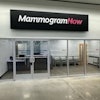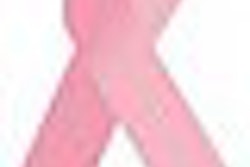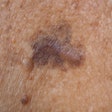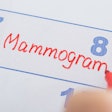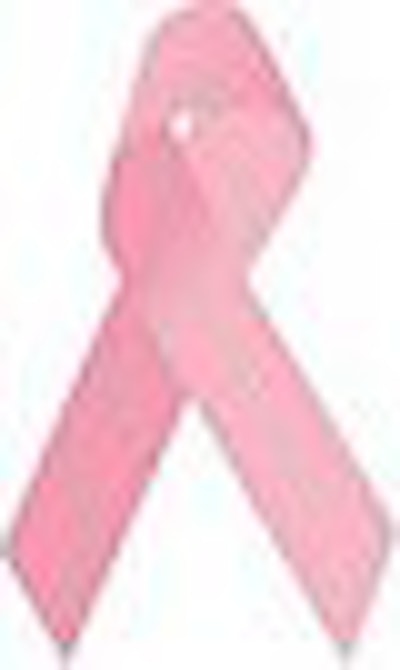
The proverbial thorn in the side of mammography screening is back, although perhaps with a slightly less sharp edge? In a new report out of the Nordic Cochrane Center in Copenhagen, Denmark, Dr. Peter Gøtzsche conceded that "(breast cancer) screening appears to lower breast cancer mortality," but ultimately stood firm that "there is no clear evidence that screening does more good than harm."
Six year ago, Gøtzsche and colleagues caused a fracas with their meta-analysis of eight major screening trials, ultimately deciding that regular screening was unjustifiable. A year later, in response to the breast health community's outcry, they took another look at their data and, once again, proclaimed that screening mammography did not reduce mortality.
In this third go-around, they analyzed seven screening trials involving half a million women worldwide. These included the New York Health Insurance Plan trial in 1963 and the ongoing BreastScreen Singapore.
"The (current) review found that mammography screening for breast cancer likely reduces breast cancer mortality, but the magnitude of the effect is uncertain and screening will also result in some women getting a cancer diagnosis even though their cancer would not have led to death or sickness," wrote Gøtzsche's group (Cochrane Database of Systematic Reviews, October 18, 2006, Issue 4:CD001877, DOI:10.1002/14651858.CD001877.pub2).
Specifically, they argued that screening led to overdiagnosis and overtreatment with significantly more breast operations and radiotherapy sessions performed in screened groups versus control groups.
In this "update" to the data, Gøtzsche continued his support of controversial Canadian studies, while dismissing two major Swedish trials. His group deemed the Gothenburg Breast Cancer Screening Trial and the Two-County Trial as being of "poor quality" because of inadequate randomization.
However, they praised the Canadian National Breast Screening Study -- which cast doubt on the effectiveness of mammograms for women ages 40-49 -- as being "high quality," even though the breast imaging community has repeatedly pointed out that the Canadian studies were not blinded (women were either assigned to a screening or control group) and actually suffered from poor randomization.
Still, according to Gøtzsche's calculations, based on all trials, the reduction in breast cancer mortality was 20%. But "as the effect is lower in the highest quality trials, a more reasonable estimate is a 15% relative reduction risk (and) the absolute risk reduction was 0.05%," his group wrote.
They concluded that for every 2,000 women who are screened over a decade, one will have her life prolonged, while 10 will be diagnosed with breast cancer and treated unnecessarily.
Dr. Carol Lee, chair of the American College of Radiology's Breast Imaging Commission, told AuntMinnie.com that she didn't understand the point of this iteration of the Cochrane report, especially as there is now plenty of evidence that screening does significantly reduce mortality from breast cancer.
"I get the impression that there is another agenda here: That they want to paint mammography in the worst light possible," Lee said. "Screening does decrease mortality. Now the magnitude of the decrease, you can quibble with, but (screening) does decrease mortality and the morbidity associated with treating cancers."
In fact, data outside of screening trials have demonstrated a 24% drop in mortality from breast cancer among U.S. women in the last decade, which can be attributed to effective screening programs, she emphasized. She acknowledged that mammographic screening does have its downsides, but questioned the Cochrane's group statistical assertion that because 10 women were likely to undergo unnecessary treatment, it negated the value of screening altogether.
Lee said she hoped that the Cochrane report, conveniently released in the middle of National Breast Cancer Awareness Month, wouldn't dissaude women from screening. As of Friday, major media outlets had not picked up on the report, including the New York Times, considered by some breast imaging specialists to be on a crusade against mammography screening.
By Shalmali Pal
AuntMinnie.com staff writer
October 20, 2006
Related Reading
Breast imaging expert accuses major journals of bias against mammo, July 20, 2005
Mammography screening effective when data are analyzed correctly, February 1, 2002
Reassessment confirms: Screening mammography has no survival benefit, October 19, 2001
Danish mammographers exclude dissenting opinion, October 23, 2001
Swedish trials reiterate mammography’s effectiveness for most women, May 8, 2001
Danish mammo study reviewed: right questions, wrong answers, January 17, 2000
Copyright © 2006 AuntMinnie.com
